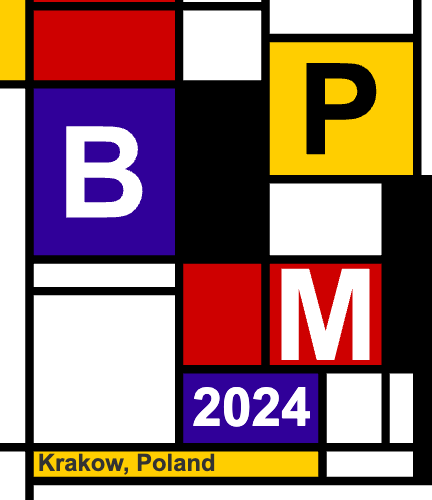BPM 2024 is the 22nd conference in a series that provides the most prestigious forum for researchers and practitioners in the field of Business Process Management (BPM). The conference has a record of attracting innovative research of the highest quality related to all aspects of BPM, including theories, frameworks, methods, techniques, architectures, and empirical findings. BPM 2024 will take place in Krakow, Poland.
BPM 2024 is soliciting proposals for one-day or half-day workshops to be held before the main conference. Workshops facilitate the exchange of ideas and experiences among active researchers and trigger in-depth discussion of technical, application, and novel perspectives in line with the conference topics. For the BPM 2024 workshops, the themes should cover the full spectrum of BPM research, with a particular focus on foundations and management. This ensures that the workshops reflect the diversity of the BPM community. Concretely, we encourage workshops that cover topics such as underlying principles and concepts of BPM, formal methods in BPM, organizational and societal challenges to be addressed by BPM, or real-world BPM endeavors.
If you aim to prepare a workshop proposal for BPM 2024, please consider that a typical BPM workshop is expected to attract around 20 participants and about 10 submissions. The workshop proposers should have a strong affinity with the proposed workshop topic and be well-connected with experts on that topic. The workshop itself should provide a forum for important, innovative, and timely BPM subtopics. We encourage workshop proposals to broadly cover and expand the topics and paradigms traditionally represented at the BPM conference.
This year, we intend to sustain the increased interaction level in all BPM workshops. Therefore, we require that every workshop includes at least one session dedicated to a creative format, e.g., a panel, a forum to connect practitioners and researchers, a research experiment, a brainstorming or co-creation session, a manifesto or paper writing session, or a session with lightning talks based on research-in-progress papers (kept outside of the official proceedings). This way, we envision that the workshop proposers can integrate mechanisms in their workshop to stimulate discussion and interaction beyond what is possible in a plenary conference session.
Proposals that meet the aforementioned criteria will be evaluated by the general workshop chairs, with the target to accept between 6 to 8 workshops covering a broad spectrum of the BPM research discipline. In the case of very similar workshop proposals, we might negotiate with the organizers to merge into a single workshop.
Workshop proposals should include the following elements:
- The title of the workshop and an acronym.
- An outline of the workshop theme, goals, planned activities, intended audience, and interactive session.
- The primary focus of the workshop within the BPM spectrum (foundations, engineering or management aspects of BPM) and whether it includes one of the above-mentioned topics.
- The intended workshop duration (full day or a half day event).
- The targeted (or past) number of submissions and acceptance rate(s).
- The rationale that supports the claim to attract more than 10 submissions.
- A brief biography of each workshop organizer.
- The activities envisioned to stimulate submissions to the workshop.
- The tentative PC and call for papers.
Proposals must be submitted as a PDF file to bpmworkshops2024@gmail.com. Any inquiries and requests for further information about the organization of workshops should be sent to this email address, too.
Important Dates
Deadline for submitting workshop proposals: December 1, 2023Notification of proposal acceptance, rejection, or invitation to negotiation: December 16, 2023- Workshop papers submission:
June 7, 2024June 14, 2024 - Workshop papers notification: July 5, 2024
- Workshop camera-ready papers: July 19, 2024
Check the list of accepted workshops.
General Workshop Chairs
Katarzyna Gdowska (AGH University of Krakow, Poland)
Maria Teresa Gómez López (University of Sevilla, Spain)
Jana-Rebecca Rehse (University of Mannheim, Germany)
